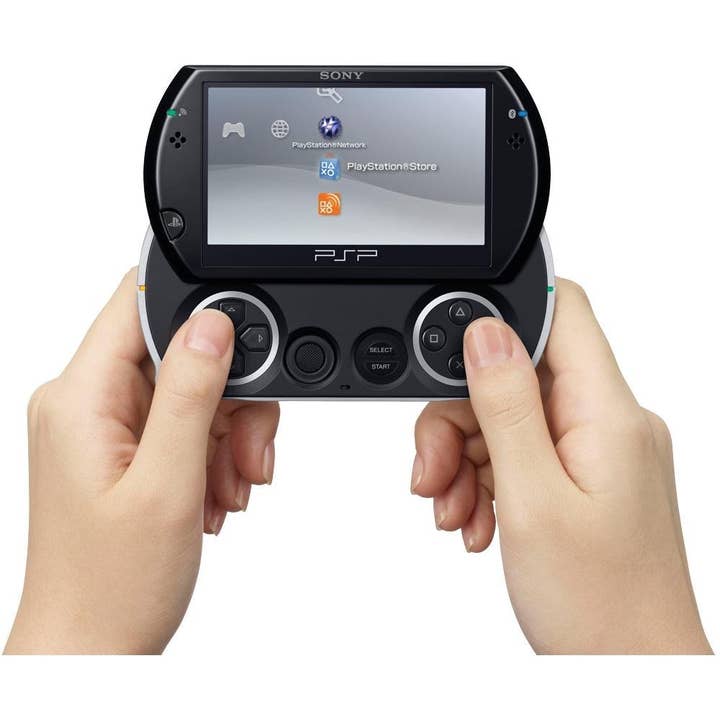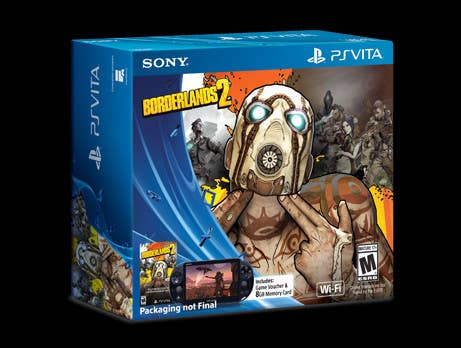PS Vita could be the first post-retail system
With a bit of vision correction, Sony's handheld is well positioned for a long and potentially lucrative life
"I'm very proud to showcase for the first time in North America the successor to the PlayStation Portable. What you've come to know as NGP, or Next-Generation Portable, is officially named PlayStation Vita. So what does Vita mean? Vita means life."
That was Kaz Hirai at Sony's E3 2011 press conference, just before he detailed Sony's grand vision for its second major foray into the handheld gaming world. Vita may mean life, but that original vision for the platform died a very quick death.
Hirai was promising an all-in-one device that would be deeply integrated into its users' lives. It would have 3G support, integrated social media functionality, and location-based gaming. Put together, those features would bring players closer to their entertainment while bringing them closer to each other. That was the goal, anyway.
Sony never made a good argument for why consumers should pay for 3G service on their Vitas, especially when they were forced to go through AT&T for it.
Sony never made a good argument for why consumers should pay for 3G service on their Vitas, especially when they were forced to go through AT&T for it. The Vita's 3G couldn't be used for real-time online multiplayer games, and the benefits of the Near social networking functionality were never clearly explained to users or taken advantage of by developers. When it came time to release a cheaper, smaller redesign of the Vita, Sony dropped the 3G functionality entirely. Earlier this week, the company said an upcoming firmware update would scrap its Maps application and remove some of Near's features for all users, even those with the original 3G hardware.
The other big sales pitch for the Vita was that it was the most powerful handheld of all time, that it would play host to a new generation of portable AAA-caliber content. And to be fair, there was some of that. Uncharted and Assassin's Creed both saw original Vita games that, while not up to par with their console siblings, were more-than-respectable attempts to forge new territory on the handheld. But more common than that were updated re-releases (Metal Gear Solid, God of War, Final Fantasy, Persona), middling games that only vaguely resembled the franchises that spawned them (Batman: Arkham Origins, Silent Hill: Book of Memories), or worst of all, Call of Duty: Black Ops Declassified (its 33 Metacritic rating is the second lowest ever for a Vita game).

In some ways it's a little reminiscent of the Vita's ill-advised predecessor, the PSP Go. The digital-only version of the PSP was never set up to succeed, from the way it cut retailers out of the ecosystem almost entirely (they could still sell accessories and PlayStation Network cash cards) to the consumer unfriendly way it slashed the system's library of available titles (many PSP games were never released digitally). The PSP Go hardware was slick and attractive, but Sony was trying to sell it without proper software or retailer support.
The Vita's struggles have similar roots. When Sony launched its new handheld on the strength of two major selling points--3G-enabled social integration and portable AAA titles--and followed through on neither of them. Predictably, the Vita floundered. The big publishers stopped supporting it, and retailers gave it limited shelf space. Usually, that would add up to a dead console.
Yet the Vita enjoys a zombie-like undeath. All reason suggests the system should be dead and gone, and it certainly doesn't appear "healthy" in any sense of the word. But where the PSP Go died a quick and quiet death, the Vita stubbornly presses on, animated by unseen forces. Grim metaphor aside, this could be a very good thing, both for Sony and the industry. (Well, some parts of the industry.) With the Vita, I believe Sony has accidentally created the first viable post-retail console, a system that not only doesn't need a presence in Walmart or GameStop, but might actually fare better without it.
The Vita doesn't need a presence in Walmart or GameStop, and might actually fare better without it.
The Vita suffers from an image problem. Just ask Drinkbox Studios' Chris McQuinn. His company has been a supporter from the beginning (Tales from Space: Mutant Blobs Attack was a launch title), and its upcoming Severed is a Vita exclusive. Speaking with GI.biz last year, McQuinn acknowledged the Vita's reputation, but said it was undeserved; the studio's own Guacamelee sold nearly as many copies on Vita as it did on PS3 despite the vast disparity in installed user base.
"I think what people fail to understand is the purchasers of Vitas are very, very engaged game consumers," McQuinn said. "For them, the attach rate with games is very high. There might not be a lot of Vitas out there, but the people who do own Vitas are very serious consumers; they buy a lot of games."
They just don't buy them at retail. The next time you're at a big box retailer, hunt down the Vita section, assuming it still has one. It's probably a pretty sad sight, a small slice of shelf space with a handful of ancient retail games, a few overpriced memory cards, and accessories like power docks or carrying cases that aren't even compatible with the currently available hardware (that's if they actually have any systems to sell). Maybe there's a copy of Minecraft, or a newish Japanese RPG of minor repute.
If Sony caters to the indie audience that is already making and consuming successful games on the system, it can extend the Vita's viable lifespan indefinitely.
Whatever is there, it isn't going to sell anyone on a $200 investment. Instead, it's going to reinforce perceptions that the Vita is a deeply unpopular system with a desperate shortage of interesting games. Changing that perception would require big-name retail games from mainstream franchises, and both Sony and its third-party partners have made clear they have no taste for such an endeavor. The best Sony could possibly be hoping for is that Remote Play functionality with PS4 games takes off and the Vita shelf space can quietly be folded into the PS4 accessory shelf space.
The good news is that the Sony doesn't actually need a home run at retail here. Vita can win in the long run not by aiming for the fences, but by playing small ball. If Sony caters to the indie audience that is already making and consuming successful games on the system, it can extend the Vita's viable lifespan indefinitely.

As it stands, the Vita hardware has more than enough horsepower to run most indie games. Given that most of the envelope-pushing in indie games is done on a thematic level rather than a technical one, that should hold true for some time. And since there will be no AAA publishers on the Vita demanding a faster, better, more expensive version of the handheld, Sony won't be in a hurry to roll out a next-gen piece of kit, either.
So small developers get a platform capable of showcasing their best efforts, but without having to go up against the AAA competition of consoles or needing to stand out from the horde of new App Store efforts. They also get a platform with multiple release windows: original launch, PlayStation Plus giveaway, and (if it takes off) PlayStation Now streaming library title. Gamers get a well-designed piece of hardware with a diverse array of interesting games mostly free from AAA trends (for better or worse), all of which have passed Sony's certification and curation criteria. And Sony gets a cut of every sale and a chance to make back whatever money it sunk into its original PS Vita vision, not to mention a new market and the first sustainable niche console. It's a classic win/win/don't-lose-as-badly-as-everyone-thought scenario.
If the system's niche is a specialist device for a specialist audience, it should be treated as such. Either pull it from the shelves entirely or change the pitch in a fundamental way.
On some level, Sony has already realized this. Last year, Shu Yoshida suggested that the future of Vita software was going to be independently developed cross-platform titles, as Sony acknowledged a drop-off in first-party support. Months later, Sony UK chief Fergal Gara said the system had "found its niche" as a specialist device and was enjoying "robust and consistent" sales as a result.
Unfortunately, Sony hasn't put the Vita in the best position to capitalize on those revelations. If the focus is shifting away from major retail releases and toward downloadable ports, the system's memory cards can no longer be offered as an expensive luxury. They need to be cheaper, or better yet, replaced by a non-proprietary format in a future iteration of the hardware. And if the system's niche is, as Gera said, a specialist device for a specialist audience, it should be treated as such. Either pull it from the shelves entirely or change the pitch in a fundamental way. The Vita is unlike any other gaming system before it, and Sony is making a mistake trying to sell it like one.

